MercoPress. South Atlantic News Agency
Tag: Argentina crisis
-
Tuesday, April 2nd 2019 - 09:50 UTC
Sales of new cars in Argentina crash 50% in first quarter of the year
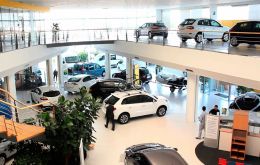
Sales of new cars in Argentina collapsed by almost 50% in the first quarter of 2019, the Association of Automobile Dealers of Argentina (ACARA) said Monday. Sales fell by 49.5% in the year-on-year comparison, with purchases down 50.4% in March year-on-year too, said ACARA.
-
Monday, April 1st 2019 - 09:58 UTC
A preview of Argentina's presidential campaign: “Macri, you son of a b...”

Contrasting and controversial political ads for the Argentine presidential election next October have emerged allegedly launched by Mauricio Macri's advisory team, and they have caused quite a surprise when not a stir. The idea is to promote public works and investments undertaken by the Macri administration despite the virulent criticism of current policies.
-
Saturday, March 30th 2019 - 08:18 UTC
A third of Argentines, and one in two children living in poverty conditions, according to official data
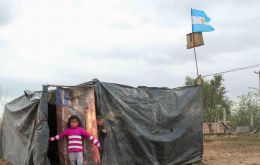
The poverty rate in Argentina during the second half of 2018 rose to 32%, or six percentage points from the same period the previous year, while 6.7% of citizens are living in a state of extreme poverty or indigence. The data was released by the INDEC Argentina's official statistics bureau on Thursday.
-
Saturday, March 16th 2019 - 10:15 UTC
IMF prepared to help Argentina stabilize exchange market volatility in election year
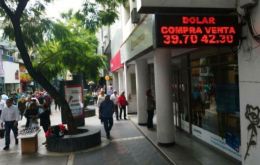
Argentina’s central bank wants to license market makers to help stabilize its embattled peso currency when the Treasury starts newly announced dollar sales in April. The bank hopes the market makers, dealers who agree to buy and sell at set prices, would bolster liquidity in the exchange market to help avoid the sharp gyrations the peso has suffered in recent weeks when it hit a record low of 42.5 pesos per dollar in thin trading.
-
Friday, March 15th 2019 - 08:48 UTC
Argentine inflation in February, 3.8% and 51% in twelve months; central bank new measures
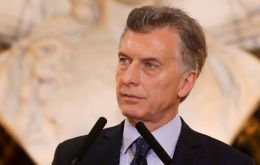
Argentina’s stubbornly high inflation accelerated again in February, the government said on Thursday, sparking the central bank chief to pledge new measures to rein in rising prices that have dogged the South American economy over the last year.
-
Friday, March 8th 2019 - 08:58 UTC
Argentina's Peso hit a record low to the dollar weakening 4%
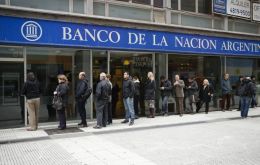
Argentina’s struggling currency hit a record low against the dollar on Thursday, weakening over 4% to close at 42.5 pesos per dollar, a challenge for President Mauricio Macri as he looks to right the economy ahead of elections in October.
-
Thursday, February 28th 2019 - 09:18 UTC
Argentina's economic activity dropped 2.6% in 2018, says Indec
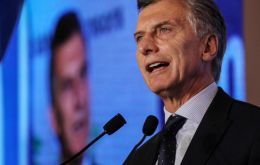
Argentina's economic activity fell 2.6% in 2018 versus the previous year, government statistics agency Indec said on Wednesday, underscoring the turmoil that dragged the country into recession last year.
-
Thursday, February 14th 2019 - 10:15 UTC
“Food emergency” demand march in Argentine cities

Thousands took to the streets in 50 Argentine cities and towns Wednesday demanding that the government declare a “food emergency” and put an end to suffocating price increases. Since President Mauricio Macri came to power in 2015, electricity bills have gone up 210% and gas 300%. The government blamed the increase on the removal of significant subsidies in place under the previous administration.
-
Thursday, February 7th 2019 - 09:57 UTC
Argentine construction industry activity in the doldrums
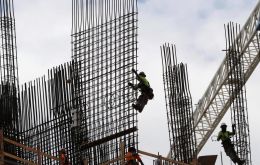
The construction industry in Argentina ended 2018 with a paltry 0.8% growth, and although taking off at the beginning of last year with a vigorous impulse but beginning May, when the financial situation forced the Peso to lose half of its purchasing power, activity started to freeze ending December with a 20.5% collapse.
-
Friday, January 18th 2019 - 10:04 UTC
Wholesale prices in Argentina reach 73.5% in 2018; Peso rallies 10% in the midst of recession

Wholesale prices in Argentina shot 73.5% higher in 2018, government data showed on Thursday, the fastest rate since 2002 when they climbed 118% during an economic crisis that tossed millions of middle-class Argentines into poverty.
